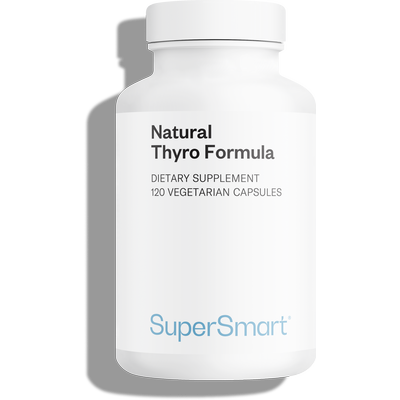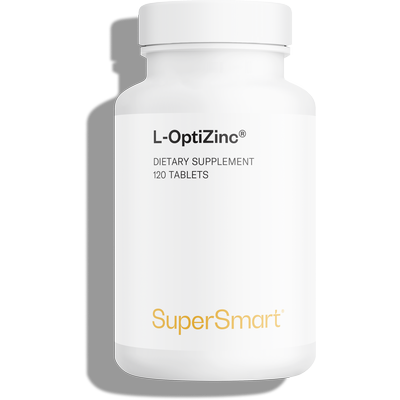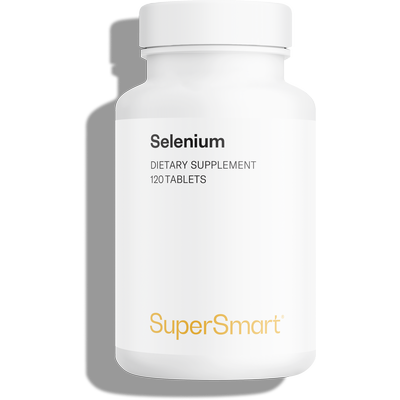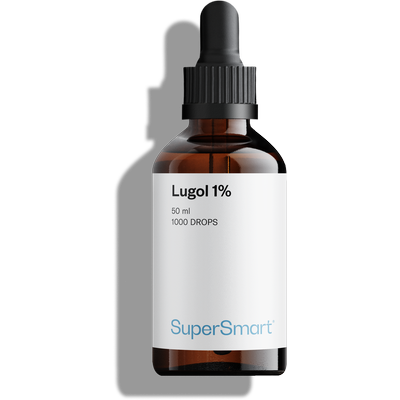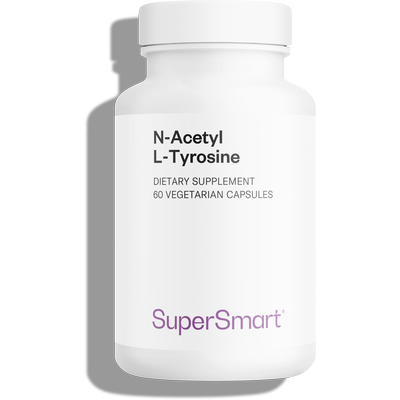06-01-2017
The best strategy for combatting hypothyroidism
 Hypothyroidism or thyroid insufficiency particularly affects women, and incidence is known to increase with age. It is characterised by an inability to produce or release enough T4 (thyroxine or tetraiodothyronine) and active T3 (triiodothyronine) thyroid hormones. Even though T4 is the most abundant of these in the blood, it is a pro-hormone, and is three to ten times less active than T3.
Hypothyroidism or thyroid insufficiency particularly affects women, and incidence is known to increase with age. It is characterised by an inability to produce or release enough T4 (thyroxine or tetraiodothyronine) and active T3 (triiodothyronine) thyroid hormones. Even though T4 is the most abundant of these in the blood, it is a pro-hormone, and is three to ten times less active than T3.
Unexpected weight gain, constipation, feeling chilly even in summer, cold extremities, dry skin, a lack of energy, sleep problems and a puffy face and eyes are all warning signs that require a blood test to confirm diagnosis. The problem is, it’s not unusual for a doctor to say that levels of thyroid-stimulating hormone (TSH) are within the normal range (0.55-4.78mIU/l and that no treatment is necessary.
Sometimes, a doctor will prescribe treatment in the form of synthetic T4, levothyroxine (L-T4), better-known as Levothyrox®, but it will fail to stop the symptoms. This may be because the T4 is not being converted effectively into T3 in the liver and kidneys due to deficiency in iron or selenium, a sluggish liver, chronic stress, intense physical activity, the contraceptive pill or hormone replacement therapy.
TSH levels … is the ‘norm’ too high?
According to leading iodine specialist Dr Rudy Proesmans, optimal TSH levels are somewhere between 0.15 and 2mIU/l; but even if levels are within the norm, taking specific supplements on a daily basis is still beneficial for the regulation of a number of thyroid-controlled physiological functions: weight control, body temperature, energy, mood and libido, muscle, heart and blood vessel function, bone and tooth density and skin, hair and nail health.
Addressing thyroid insufficiency requires a dual approach: firstly, you need to modify your eating habits:
-
- Increase your iodine intake by consuming more seafood (fish, shellfish, crustaceans and algae),
- Restrict your consumption of goitrogens (foods that impede iodine uptake): cauliflower, broccoli, Brussels sprouts, kale, soya, cassava, sweet potatoes.
- Boost your intake of minerals: selenium, (Brazil nuts), zinc (oysters, seafood) and reduce that of protein as it slows down the conversion of T4 into T3.
At the same time, you should take specific, safe and effective dietary supplements, either on their own or in conjunction with levothyroxine.
Three essential ayurvedic plants
The root of Coleus forskohlii containsforskolin, a substance able to stimulate natural production of AMPc which is needed for the transmission of information in the hypothalamic-pituitary axis. As a result of this action, extract of coleus forskohlii root stimulates the generation of T4 and T3 thyroid hormones via TSH (Thyroid Stimulating Hormone) produced by the pituitary gland. Indeed, the role of TSH is to encourage increased thyroid hormone production when levels are too low. It is therefore advisable to take 100-200mg a day as soon as symptoms appear or as a complement to drug treatment in the case of persistent symptoms. In addition, some studies have demonstrated that this plant helps increase basal metabolism allowing more calories to be burned at rest by increasing lipolysis. This is a significant effect given that hypothyroidism is often accompanied by considerable weight gain. Guggul (Commiphora mukul) , also known as Mukul myrrh tree, is widely used in Indian medicine. At a minimum of 35mg/day – which generally equates to1.5g of guggul extract - the guggulsterones in guggul stimulate thyroid activity, and increase the conversion of T4 to T3 and basal metabolism.Daily supplementation with guggul also activates lipolytic enzymes and regulates adipocyte size and numbers, making it a supplement of choice where weight gain is an issue.
And finally,Ashwagandha root extract (Whithania somnifera) , perfectly complements the action of these first two plants in supporting sluggish thyroid function.
Vitamins and specific minerals
Together with these specific plant extracts, it is also wise to take a multi-complex providing all the vitamins and minerals essential for overall thyroid function. Among the basic nutrients that support thyroid hormone production, improve receptor sensitivity to T3 and T4 hormones and enable the conversion and activation of T4 into active T3 are vitamins B6, B9, C, A, D3 and the following minerals. :-
- magnesium which prevents a reduction in thyroid activity either following intense exercise, or in older or sedentary individuals
- zinc which promotes production of T3,
- selenium which facilitates the conversion of T4 into T3,
- and especially iodine.
A major trace element: iodine
Iodine is used in the production of T4 and T3 thyroid hormones. The figure after the T actually indicates the number of iodine atoms. According to Dr David Brownstein, a world expert on iodine and the thyroid, 95% of the population is deficient in iodine. Iodine thus contributes to thyroid hormone production. The most effective way for the body to obtain it is to take Lugol’s solution - an iodine-potassium iodide preparation developed by the French physician Jean Lugol in the 19th century - at a dose of 60 drops a day which equates to 150µg of iodine. It can also be obtained from algae such as fucus and, in order to conserve cellular iodine and prevent it from leaking, myricetin, a flavonoid found in fruit and vegetables, should also be taken at the same time.As the diet provides only 50-70µg a day, iodine supplementation is essential. As advised by the WHO, it is free from toxicity at daily doses up to 1000µg.
The thyroid amino acid: L-tyrosine
Along with iodine, this amino acid is essential for the production of T4 and T3 thyroid hormones. Although the body can naturally synthesise L-tyrosine from L-phenylalanine, this process declines with age, necessitating daily supplementation with between 0.5g and 1g. Supplements should be taken in between meals on an empty stomach for optimum bioavailability, and ideally in the morning to avoid affecting sleep.The addition ofKaempferol, a flavonoid found in many plants, may also increase up to 10-fold the activity of an enzyme which converts T4 into T3, according to in vitro studies.
Order the nutrients mentioned in this article
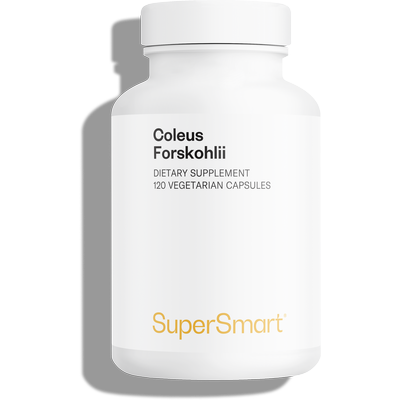
Standardised extract 10% forskolin, restores sensitivity to hormone receptors
www.supersmart.com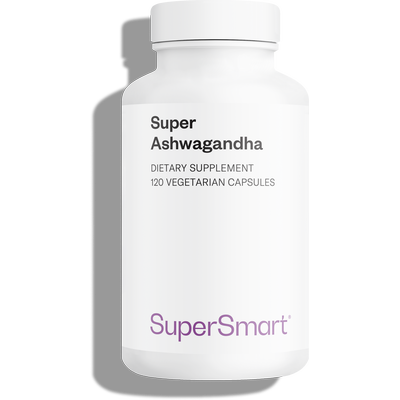
An organic Withania somnifera extract for mental health and relaxation
www.supersmart.com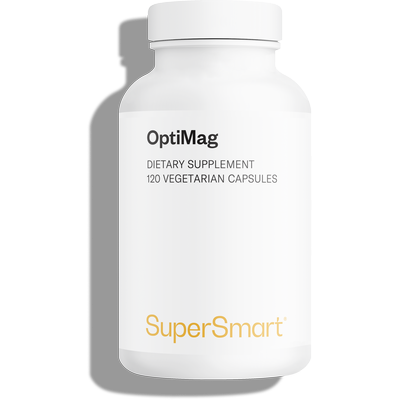
Unique and synergistic combination of 8 exceptional forms of magnesium (excellent bioavailability and solubility)
www.supersmart.comFurther reading
01-11-2017
Progesterone plays an essential role at all stages of a woman’s life. Supplementing with natural progesterone - bioidentical to that produced by the body –...
Read more31-07-2017
Food cravings affect those trying to lose weight just as they do stable-weight individuals. Finding a lasting solution to these sudden ‘snack attacks’ requires a...
Read more06-09-2013
Extracts of Magnolia officinalis and Phellodendron amurense have been part of the Chinese pharmacopaeia for almost 2000 years, prescribed for restoring emotional well-being due to...
Read more© 1997-2026 Fondation pour le Libre Choix
All rights reserved
All rights reserved
Free
Thank you for visiting our site. Before you go
REGISTER WITHClub SuperSmart
And take advantage
of exclusive benefits:
of exclusive benefits:
- Free: our weekly science-based newsletter "Nutranews"
- Special offers for club members only



